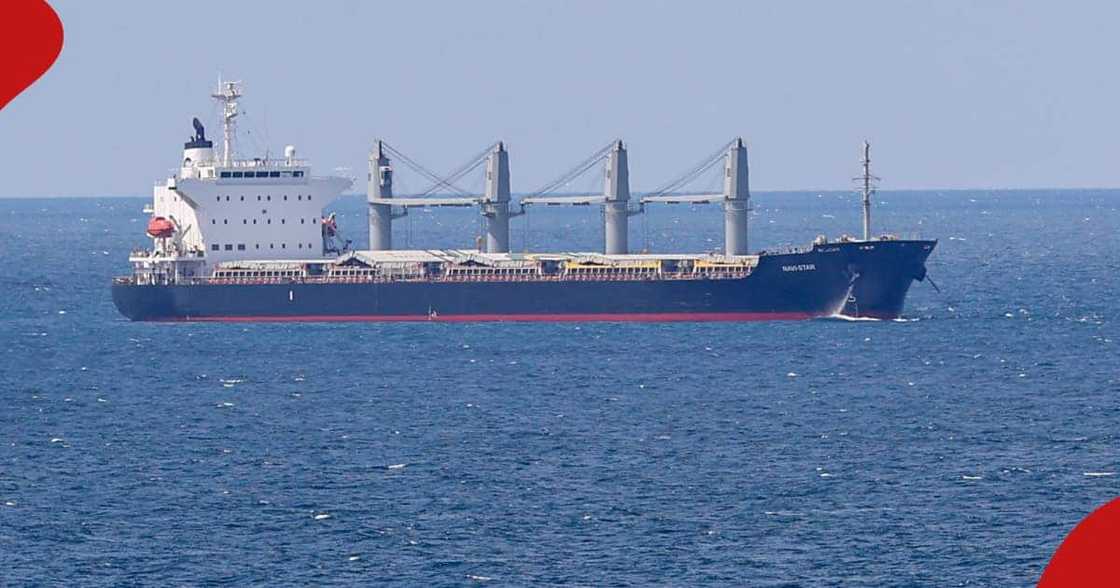UN Raises Alarm over Continued Closure of Ukrainian Black Sea Port: "Not Sustainable"
- Russia blocked Ukrainian ports on the Black Sea at the start of the conflict, interfering with regional maritime trade
- The now-defunct Black Sea Agreement was a deal between Russia, Ukraine, Turkey and the United Nations (UN)
- The deal was reached in July 2022, when Russia gained control of the Ukrainian seaport and banned all activities
- Saviano Abreu said the UN seeks to guarantee sustainable, safe and predictable civilian shipping in the Black Sea
It is now emerging that the current maritime export routes for Ukrainian grain in the Black Sea are not sufficiently dependable or predictable.

Source: Getty Images
This is according to the spokesperson for the United Nations (UN) Office for the Coordination of Humanitarian Affairs, Saviano Abreu. Abreu said during an interview with the Ukrinform news agency on 10 January:
"The problem with these alternatives [to the Black Sea Grain Initiative] is that they are still not sustainable or even predictable."
Briefly News understands that the now-defunct Black Sea Agreement was a deal between Russia, Ukraine, Turkey and the UN that allowed for the safe export of grain from Ukraine's Odesa seaports. Abreu continued:
"Unfortunately, we saw an increase in mine contamination of the Black Sea after the termination of the initiative. And we witnessed the level of repeated [Russian] attacks on Ukrainian ports, including on the Danube River, which could be an alternative export route."
How the UN plans to break the stalemate
Abreu also revealed that the UN is looking for ways to guarantee sustainable, safe and predictable civilian shipping in the Black Sea.
The New Voice of Ukraine reported that Russia blocked Ukrainian ports on the Black Sea at the start of the conflict, interfering with regional maritime trade.
Large-scale repercussions resulted from this as food exports from Ukraine support over 400 million people, including those in Asia and Africa.
Which are the primary grains for export?
The grains were primarily corn and wheat, which are also Ukraine's two major exports. The deal was reached in July 2022, when Russia gained control of the Ukrainian seaport and banned all activities.
Turkey was given the responsibility of inspecting the ships when they passed through the shipping lane to ensure that the vessels were not carrying any weapons.
The agreement also included a ceasefire between Russia and Ukraine in the areas around the Odesa seaport.
However, Russia officially terminated its participation in the Black Sea Grain Initiative on 17 July 2023.
Following the UN-Russian grain deal's termination, the Ukrainian Navy announced on 10 August 2023, new temporary routes for civilian vessels to and from Black Sea ports.
On 3 November 2023, US Ambassador to Ukraine Bridget Brink said that 3.6 million metric tonnes of food had been exported by 100 ships that had travelled through Ukraine's makeshift grain corridor in the Black Sea.
Amount of merchandise exported through Odesa ports
By 27 November 2023, Odesa ports had exported nearly six million metric tonnes of merchandise.
Briefly News earlier reported that Ukraine exported about 13 million metric tonnes of merchandise on some 400 ships since setting up a protected maritime corridor to fend off Russian threats, according to a government minister.
While Ukraine had few military achievements on land in 2023, on the Black Sea, it has pushed Russia's much larger navy away from its coasts, allowing the resumption of grain exports.
Source: TUKO.co.ke

